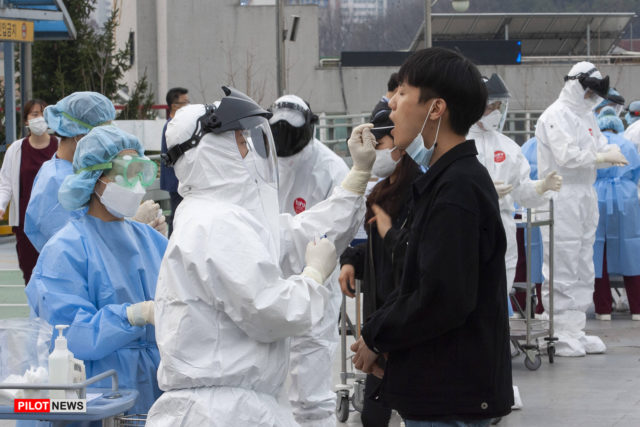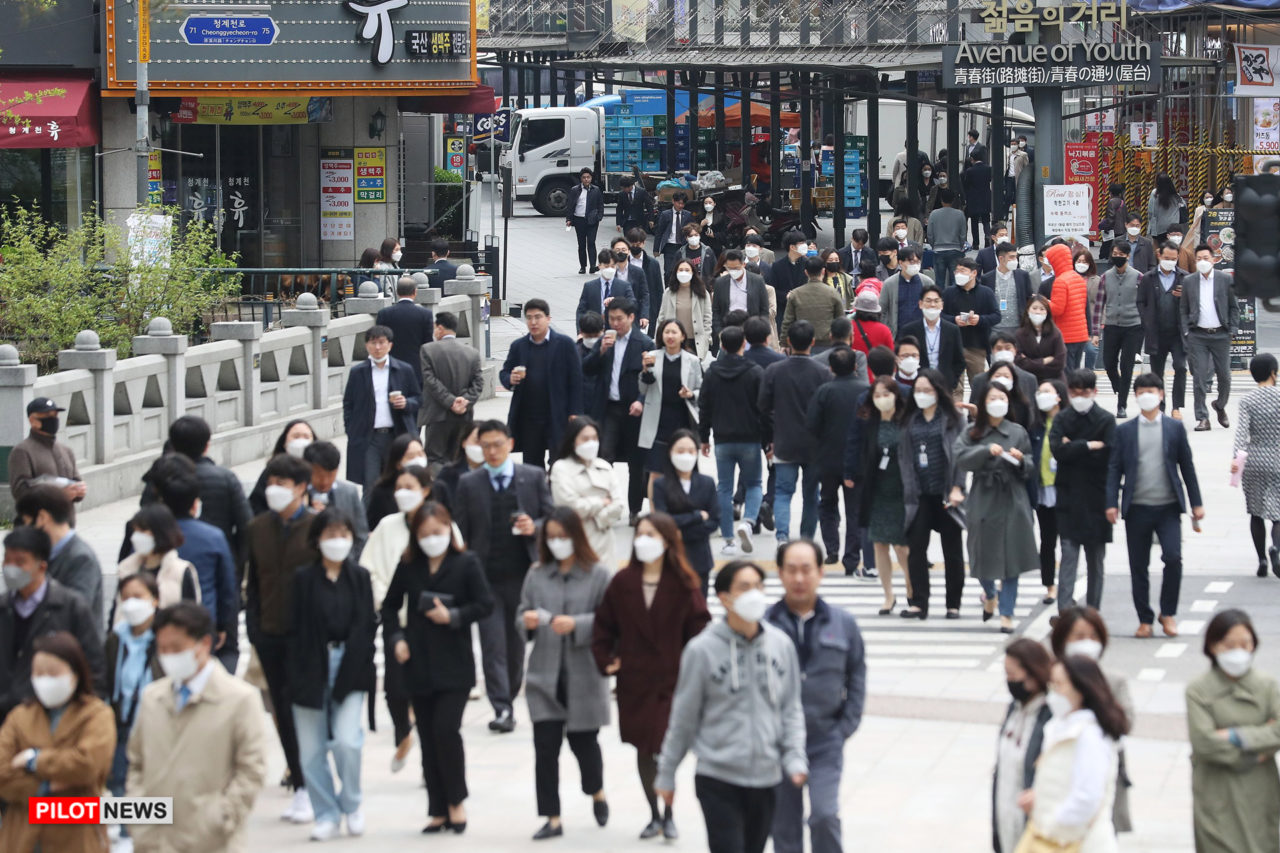South Korea reported 13 more cases of the new coronavirus on Monday, bringing the country’s total infections to 10,674.
It marked the third day in a row that the country’s new virus infections stayed below 20, according to the Korea Centers for Disease Control and Prevention (KCDC).
South Korea recorded single-digit new cases on Sunday for the first time in two months with eight, which also marked a drastic drop from the Feb. 29 peak of 909 new cases.
The country confirmed its first COVID-19 infection on Jan. 20.

Of the new cases, seven came from overseas, the KCDC said.
Buoyed by the signs of a slowdown, the country on Sunday said it would maintain the social distancing drive against the coronavirus by two more weeks until early May with less intensity, easing the guidelines for religious gatherings and recruitment tests.
Patients in their 20s accounted for the largest portion of 27.4 percent, followed by patients in their 50s and 40s with 18.2 percent and 13.2 percent, respectively.
The nation’s death toll from the coronavirus, which emerged in China late last year, rose by two to 236, the authorities said.
South Korea’s COVID-19 fatality rate reached 2.21 per cent.
The rate, however, came to nearly 10 per cent for patients in their 70s and 23 per cent for those in their 80s.
In total, 8,114 people in South Korea have recovered from the virus, rising 72 from a day earlier.
Daegu, the nation’s worst virus-hit region that accounts for around 64 per cent of the total cases, added one new case.
Its surrounding North Gyeongsang Province reported two new cases.
The total number of cases reported in Daegu and North Gyeongsang Province reached 6,833 and 1,361, respectively.
Seoul, the most populous city of South Korea, reported no additional cases, with the surrounding Gyeonggi Province adding two new COVID-19 infections.
The capital city has reported 624 cases so far, taking up less than 6 percent of the total.
Despite the signs of a slowdown, health authorities are keeping a watchful eye on imported cases.
The number of patients who were infected overseas reached 1,006, with South Korean nationals responsible for more than 90 per cent.
The KCDC said 418 were detected at border checkpoints, while 588 were identified by municipal health authorities. No quarantine officials from airports have been infected so far.
Patients in their 20s accounted for nearly 50 per cent of such infections, followed by those in their 30s with 20 per cent.
The KCDC said 61 imported cases infected another 157 people locally, most of them being their family members.
Over the past two weeks, the imported cases accounted for more than 56 per cent of newly confirmed cases.
The number of people who tested positive again for COVID-19 after making full recoveries has reached 181 since the first such case was identified on April 8.
No secondary infections have been reported from relapse cases.
Authorities earlier said they were leaning more on the possibility of “reactivation” of the virus among the patients, not “reinfection.”
The country has carried out 563,035 tests since Jan. 3, up 3,926 from a day earlier.
While the country has decided to ease its social distancing drive, moving toward “everyday life quarantine,” health authorities said citizens are required to remain vigilant and avoid unnecessary gatherings.
On Sunday, South Korea decided to allow essential qualification tests or recruitment exams, with administrative orders on churches, bars, gyms and cram schools being lifted on condition that they comply with strict quarantine rules.
The KCDC, however, warned the number of new cases may increase later in the year, particularly in winter.
“The number of new infections may repeat its increase and decline until reaching another COVID-19 pandemic during the winter season, which offers a better environment for the virus,” KCDC Director-General Jeong Eun-kyeong said in a daily briefing.
Considering people who cast ballots in the general elections last week, Jeong said the KCDC will remain alert over a sharp rise in new infections through next week, given the incubation period.
The country held the general elections Wednesday, with more than 29 million voters showing up at polling stations nationwide wearing face masks.
Health authorities said the country will operate treatment centers with a capacity of 300 patients with light symptoms in the Seoul metropolitan area to brace for the rising number of imported cases.
In contrast, South Korea has reduced the number of such centers in Daegu and the surrounding North Gyeongsang Province to five from the peak of 16, in sync with the falling number of new patients.


